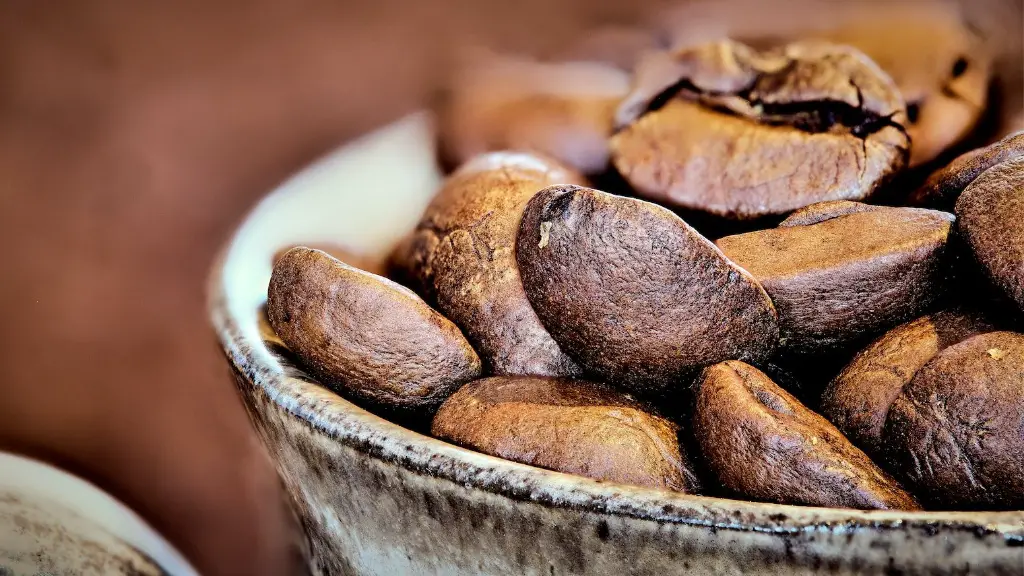Caffeine and Mental Health
Coffee is not only a popular drink; it provides an instant kick to help us go through the day. Every steamy cup of espresso or cappuccino is loaded with caffeine, a stimulant that affects the central nervous system. But with all this caffeine, it calls the question whether drinking too much coffee is actually bad for our health.
According to experts, some of the main risks associated with excessive caffeine consumption is that it can interfere with general mental health and lead to feelings of anxiety or depression. Increasing evidence suggests caffeine acts as a neurotransmitter that blocks adenosine receptors, which can cause increased levels of anxiety and stress. Caffeine can also lead to feelings of restlessness and insomnia, which further contributes to negative mental health.
Furthermore, recent research has linked excessive amounts of caffeine with an increased risk of miscarriage. A study from 2019 showed that a caffeine intake equivalent to five cups of coffee is associated with a 72% higher risk of miscarriage, compared to those who do not consume any caffeine. The researchers suggested that caffeine can increase the risk of placental abruption, leading to an increased risk of miscarriage and other complications.
The potential cons of drinking too much coffee does not mean that there are no potential benefits. Drinking coffee could potentially reduce the risk of many diseases. Recent studies have shown that moderate coffee consumption can have protective effects against heart disease, certain types of cancer, type 2 diabetes and more. However, it is important to note that these findings are still preliminary and more research is needed to understand the exact effect of caffeine on our health.
When it comes to determining if drinking too much coffee is bad for us, there are still many unanswered questions. It is quite difficult to determine the exact effect of coffee consumption on our health. While coffee can provide benefits, it is important to remember to consume it in moderation. Drinking too much coffee could potentially lead to various mental health risks, as well as an increased risk of miscarriage.
Caffeine Addiction
Caffeine addiction is a real issue and is one of the most commonly reported types of substance abuse. For some individuals, the addiction to caffeine can be intense and have serious negative effects on their physical and mental health. Caffeine addiction is often associated with restlessness and sleep disturbances, as well as depression and anxiety.
When it comes to caffeine addiction, one of the most important things to remember is that moderation is key. Consuming too much caffeine can lead to uncomfortable symptoms such as jitters, headaches, and insomnia. Furthermore, if you find yourself relying on coffee to get through the day and having to increase the amount of coffee you drink to feel the same effect, you might be in danger of developing a caffeine addiction.
It is important to recognize the warning signs of caffeine addiction, such as feeling the need to increase your intake to get the same effects, or feeling agitated if you cannot have your coffee. If you think you might be developing a caffeine addiction, it is important to talk to a doctor. They will be able to help you develop a plan to reduce your consumption in a safe and effective way.
Coffee Alternatives
When it comes to replacing coffee, there are many alternatives that are just as satisfying. For those that don’t want to give up on the energizing feeling of a cup of joe, there are caffeine-free options like decaf coffee or tisane. Herbal teas such as chamomile, mint, and rooibos are all caffeine-free alternatives that provide the same calming and comforting feeling.
If you’re looking for a more energizing option, there are also many options such as yerba mate and guayusa, which are herbal teas known for their energizing properties. These herbal teas contain low levels of caffeine and also have additional health benefits, such as antioxidants and essential minerals.
Finally, if you need something to give you a quick boost of energy, there are more options such as matcha, an energizing green tea powder, or kombucha, a fermented tea that is jam-packed with beneficial bacteria and antioxidants. These alternatives are an excellent way to get an energy boost and benefit from the nutrients and antioxidants present in these drinks.
Coffee Consumption Guidelines
With all this being said, it is important to remember that moderation is key when it comes to drinking coffee. The general recommendation is not to consume more than 400 mg of caffeine per day, which is equivalent to 4 cups of coffee. It is also important to recognize that everyone’s reaction to caffeine is different, so it is important to find the right balance for your body.
Furthermore, pregnant women should limit their caffeine intake to 200 mg or less per day. It is also important to remember that caffeine can stay in your body for up to 10 hours, so it is important to keep track of your intake throughout the day.
Finally, it is important to note that some individuals are more sensitive to caffeine than others. If you find yourself feeling anxious or jittery, it might be a sign that you are consuming too much and should consider reducing your consumption.
Health Benefits of Coffee
Despite the potential risks of consuming too much coffee, there are many potential health benefits of moderate consumption. For example, coffee is known for its antioxidant properties, which are compoundsthat help neutralize free radicals and protect the body from damage. It is also known for its anti-inflammatory properties, which can help reduce the risk of chronic disease.
In addition, coffee can also help improve cognitive function. Coffee can help improve focus and concentration, as well as long-term memory. Studies have also shown that coffee can help improve mood and reduce the risk of depression. Furthermore, coffee can also help reduce the risk of certain types of cancer, such as prostate cancer.
It is important to note, however, that many of these findings are still preliminary and more research is needed. While coffee can provide some potential benefits, it is important to remember that excessive consumption can lead to potential risks and should be consumed in moderation.
Coffee Health Alternatives
When it comes to replacing coffee, there are many alternatives that are just as satisfying. There are many herbal teas such as chamomile, mint, and rooibos, which are all caffeine-free options that provide the same calming and comforting feeling. Additionally, there are energizing options such as yerba mate and guayusa, which are herbal teas known for their energizing properties. Finally, there are more options such as matcha and kombucha, which are excellent sources of energy and nutrients.
Ultimately, when it comes to drinking too much coffee, moderation is key. While coffee can provide some potential benefits, it is important to remember that excessive consumption can lead to potential risks and should be consumed in moderation. There are also many alternatives to coffee that can provide the same energizing or calming effects without the risks.




